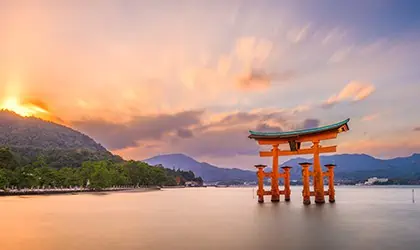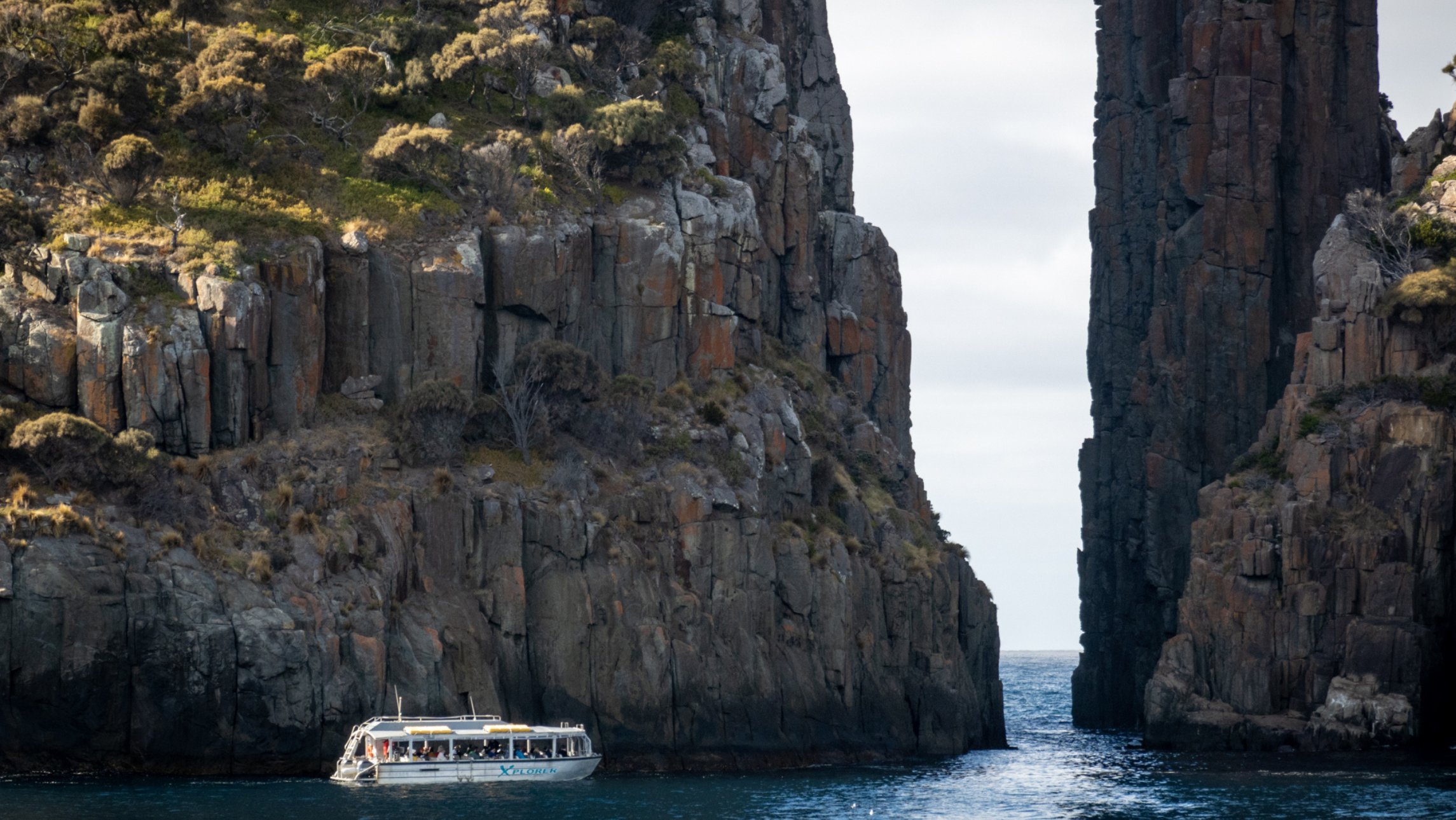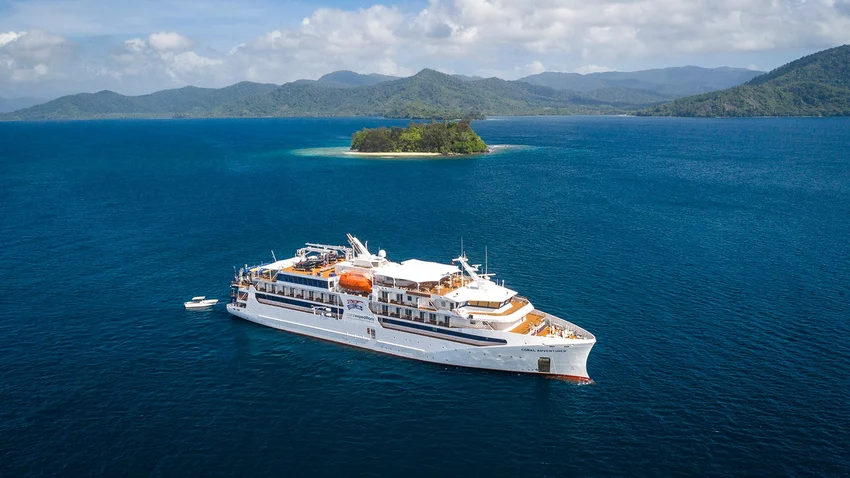A homegrown and beloved cruise line, Coral Expeditions, has long thrilled Australians with the chance to see all the most spectacular corners and crevices this country has to offer. However, now they want to show you the world.
Coral Expeditions is launching a range of cruises as part of their ‘Small Islands of the World’ program, to some of the most pristine and secluded islands of Japan and the Philippines.
These ‘Small Islands of Japan and the Philippines’ cruises offer an immersion into the less-touristy and less-explored parts of these beautiful countries.
There are four brand new voyages that you can find and book here.
Coral Expeditions Commercial Director Jeff Gillies says Coral Explorer’s want to take their customers to the unseen and unspoiled regions of these countries.
“Japan represented an interesting prospect for us because we see other operations up there and we know our guests really have a connection with Japan.
“Basically, what we had to do was ‘go okay let’s do Japan, but it won’t work for us if it’s mainstream Japan’, even though one of the one journeys does visit through Tokyo and Osaka, but that is more of a bridging journey, but the two trips on the way up and the way back basically visit a Japan that is totally unseen.
“Even people from Japan have never and will never get to these far away islands, because they’re so disconnected from the mainland. We always look for far away places, hard to get to and something that has got a bit of mystique about it.”
For the Philippines itineraries, Mr Gillies says remoteness is once again key to designing the voyages.
“In the Philippines we explore some really, really small islands. At the end of Philippines trip, we come through Micronesia, that trips a really interesting one. Some of the places out there still trade rocks as currency.”
The voyages are together in a series, meaning you can book multiple trips back-to-back, which many are choosing to do.
“We’ve found at least 50% of people have booked at least two together. We even have six couples that are leaving Darwin and going all the way back into Cairns, doing all seven voyages.”
Time to take on the world
Mr Gillies says that Coral Expeditions are ready to treat cruisers to the new exploring they seek.
“We’ve now got about 65,000 past passengers and those passengers, a lot of them have done you know Tasmania, the Kimberley, the Great Barrier Reef and are looking for adventures further afield.”
The addition of Coral Geographer to the fleet is allowing Coral Expeditions to not only visit Australia’s neighbouring countries, but explore even more exotic locations. While Coral Explorer will be taking guests to Japan and The Philippines, Coral Geographer is heading off in a totally different direction, with a whole host of other unique destinations.
“Coral Geographer will do the Kimberely then she’ll go off on a series through the indian ocean all the way out to the edge of Africa. Once she’s out in Africa, she’ll then go around the Cape, up to Western African, then cross the Atlantic into South America, going as far up as Cuba.
“Then she’ll come through the Panama Canal and basically come in through the Pacific Ocean, going to the really wide-out islands like Pitcairn and Easter Island.”
 How does Coral decide where to sail?
How does Coral decide where to sail?
Mr Gillies says there is a team dedicated to finding Coral Expeditions the most invigorating travel destinations possible, centred around a philosophy of taking people to places they couldn’t get to any other way.
“We have sort of a council within the team, with myself, the general manager, the product director and some of the masters, basically what we look for is, we’re an expedition company and expedition for us has always been ‘places that you can’t easily get to by plain train and automobile’.
“We love exploring vast oceans, we look for the really small interesting islands within those oceans.”
The small ship experience
With ships that take approximately 100 people on-board, Mr Gillies says this allows for the ships to visit more remote locations.
“The ships are big enough to get there safely and comfortably, but small enough to be welcome. A lot of these places we either have contacts there and their initial reaction is ‘we don’t take cruise ships’, then we tell them that it’s only around 100 people.
“This means you’re welcome and able to get into places and also don’t need big port infrastructure and often times all we need to do, is kind of have the ship offshore, dispatch the guests in the little tenders, they zoom in and they come back. You don’t even really need anchorages.”
Mr Gillies says this advantage extends beyond just getting to see remote places, but also the chances for a more authentic and intimate experience.
“When you get ashore you can actually have a connection with the people, you don’t kind of interrupt and stop their day, it’s not something that’s too busy for them, the guests get a chance to feel as though they make a personal connection.”
 Why change from the big ship to the small ship experience?
Why change from the big ship to the small ship experience?
If you want to still keep some of your creature comforts but also divulge in a more explorative and secluded travel experience, then Mr Gillies says Coral Expeditions is for you.
“The type of person who likes to travel with us, they’re generally worldly, they’ve been to a lot of places. On our particular voyages and with Coral Expeditions, they’re quite curious. They’re much more interested in the knowledge, connection and learning, it’s less about the frills, it’s about the adventure and the learning they’ll get along the way.”
For those who are more used to a big ship experience, Mr Gillies jokes that as long as you’re okay with giving the casino and other big ship staples a miss, you should definitely go for it.
“Probably half of our clients over the years have tried large ship cruising and liked some of the elements of travelling at sea but aren’t comfortable with the crowds so they come seeking us.
“I’d probably put my tongue in my cheek and say long as you’re not looking for the casino, the hairdresser, or the shopping experience, if exploring the environment, the nature, the people and the history is something that’s of interest to you, you can certainly get the best out of it on a small ship expedition.”
For more information, click here









